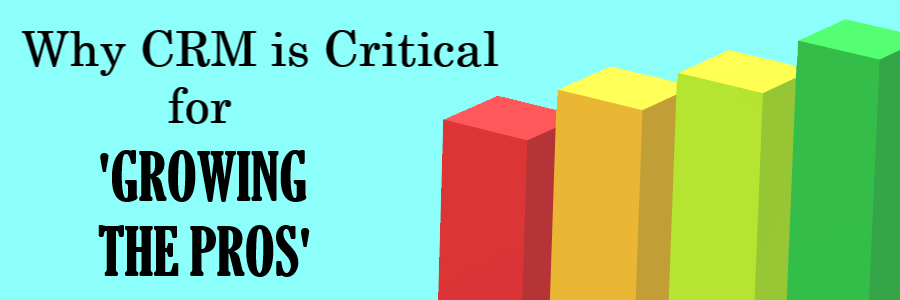Why CRM is Critical for 'Growing the Pros'
by Black Ink Team

If you are an equipment manufacturer, distributor, or dealer – and you are looking for a tool that will help you capture more of the professional market for your product – look no further than CRM. CRM software grants the sales data analysis capabilities you need in order to find actionable insights to grow specific market penetration. One example of how advanced CRM platforms offer unique solutions to this problem is by highlighting ‘opportunity zones,’ or geographical areas where your product should do well for a given segment but currently isn’t. Attracting and retaining valuable customers who are going to stay loyal to your brand and continually buy products year after year requires having a clear picture of who those customers are, and you can achieve that through CRM analysis.
Even children working at a lemonade stand know: not every customer is made equal. They won’t sell too many cups if all they go after is other children, teenagers, and moms who have their hands too full – it’s people on their way to or back from work with cash in their pockets that they should try to sell to. Market segmentation is made easier and more precise with CRM analytics. Utilizing sales data housed in CRM databases, customer information can be aggregated to make customer profiles which can be used to optimize the customer experience, maximize customer engagement, and more. Additionally, marketing ROI can easily be assessed when you work with a CRM, which will give you a sense of what has worked in the past and what to try in the future.
In addition to finding the right customers, aligning customers with the right staff members is an important part of building customer relationships. In other words, if you are a sales manager, then your job is similar to a baseball manager’s. Similar to how a baseball manager has to line up which of their hitters will hit the best against which of their pitchers (and vice versa), a sales manager has to line up which members of their staff will be the most effective at handling certain situations. CRM can help, since with a CRM a sales manager can get a 10,000-foot view of the marketing demographics for their product as well as a granular view of a sales rep’s performance.
You’ve probably heard it if you read about equipment sales online, and it might sound like a nonsense buzzword – but it definitively isn’t one: sales enablement. When you don’t have tools, there are things you just can’t do. Wouldn’t you say a chainsaw ‘enables’ you to cut down a tree, or a skiff ‘enables’ you to skim across the water? CRM enables you to dive deep into customer data. It also facilitates better business practices on a daily basis. Surely, that is a tool worth having.
